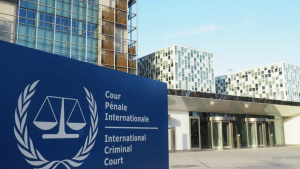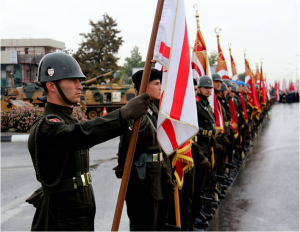By: Jacob Riederer
Impunity Watch News Staff Writer
San Jose, Costa Rica – On March 22, 2024, the Inter-American Court of Human Rights (IACHR) issued a ruling declaring that the Peruvian government’s lack of supervision and oversight of a metal refinery in the city of La Oroyoa led to violations of human rights of citizens, including the right to a healthy environment.
 |
La Oroya, located about 50 miles northeast of Lima in Central Peru, has a population of 33,000. Complejo Metalúrgico de La Oroya (CMLO), the refinery in question, has operated in that region for more than 100 years. During this time, it has refined metals with high concentrations of copper, zinc, and arsenic, among other compounds. It is currently a private company, although it was previously controlled and operated by Peruvian officials.
CMLO has generated significant pollution. In the past, La Oroya was one of the most polluted cities in the world in large part because of the refinery. Presently, air pollution levels in the city far exceed environmental guidelines required by Peruvian law.
The current case was brought against the Government of Peru by 80 residents of La Oroya, who have suffered the harmful effects of CMLO’s pollution. CMLO’s actions have exposed residents to chemicals such as lead, cadmium, arsenic and sulfur dioxide. As a result, many people in La Oroya have developed respiratory, heart, skin, and psychological conditions.
In its ruling, the IACHR held Peru responsible for violating the right to a healthy environment by failing to properly monitor and regulate CMLO. Other violations included the right to a dignified life and personal integrity because of this pollution, which has significantly affected the quality of life of its victims who are plagued by disease. The Court also noted the government’s failure to provide adequate health care to citizens affected by the refinery’s pollution.
In response to the violations the court ordered the following: the Government of Peru must 1) conduct tests to determine how polluted the air, water, and soil are in La Oroya are and create a plan for remediation; 2) provide specialized medical care at no cost to the victims; 3) improve air quality standsa; 4) develop a monitoring system for air, water and soil pollution; and 5) award damages to victims and their families.
For further information, please see:
IACHR – Comunicado de Prensa, Caso de Habitantes de La Oroya vs. Peru – 24 MAR 2024 –
IACHR – Sentencia, Caso de Habitantes de La Oroya vs. Peru – 27 Nov 2023
TIME – T he World’s Most Polluted Places, La Oroya Peru – 2007
La Republica – Peru Is Responsible for the Pollution in La Oroya – 22 Mar 2024
Yahoo News – Rights Court Condemns Peru Over One of world’s Most Polluted Towns – 22 Mar 2024



